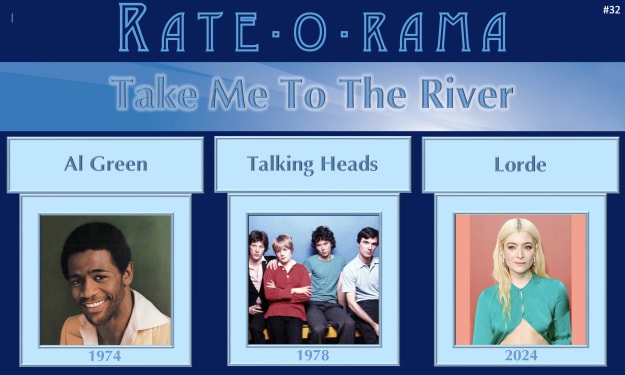A Tapestry of Sound and Vision
Soundbreaking: Stories from the Cutting Edge of Recorded Music

Even before MTV made “music video” an everyday term, rock and roll existed as a visual medium almost as much as a sonic one. One of the most obvious side effects of this duality has been the numerous attempts to encapsulate the cultural significance of rock music for television and film. Though not focused solely on rock music, the documentary series Soundbreaking, which aired on PBS before being released on DVD and digitally, is arguably the most successful effort to date. Somewhat paradoxically, the fact that that the program isn't totally focused on rock and roll is what makes it virtually definitive on the subject.
Many documentaries suffer when there's an insufficient level of focus, but Soundbreaking actually benefits from having a topic as sprawling as the history of recorded music at its center. Subordinating the style of music to how music is conveyed to listeners (and viewers) enables the series to sidestep the tunnel-vision that can make genre-specific pieces less comprehensive than their aspirations. The involvement of producer George Martin guaranteed that the Beatles and other rock legends would be front and center, but there are numerous segments devoted to artists from intersecting styles, like Johnny Cash and Dr. Dre.
There’s no shortage of fascinating archive footage throughout Soundbreaking. At the heart of the series, though, are more than 100 interviews conducted especially for the series, with Debbie Harry, Paul McCartney, and Nile Rodgers representing just a few of the artists and styles featured. Their stories, like those of everyone involved, are what make it so involving.
While some of the anecdotes—for example, recounting George Martin's early days with the Beatles in the opening installment—are probably familiar to rock music devotees, the presentation here makes them feel fresh. What this tapestry of voices particularly emphasizes is the role collaboration played in so many landmark recordings. Like most historical subjects, rock and roll (and its musical relatives) certainly lends itself to the "great man" approach, but seeing how many people actually contributed to the various milestones is much more satisfying.
The show also offers numerous reminders that much of what excites and endures in pop culture is the result of happy accidents, as much as intention. A case in point is found in the episode Sound & Vision, which chronicles the emergence of MTV. The general scarcity of music videos, particularly from American artists, opened the door for relatively unconventional British bands to find a receptive US audience. The result was, as original VJ Mark Goodman puts it, "by default, we wound up being really progressive, and really sort of ahead of our time."
In a similar vein, the series is often at its best when it shows the role technical limitations—or sometimes a lack of limits—factored into particular works. Perhaps the most telling example comes in the second episode, Painting With Sound, recounting the recording of Fleetwood Mac's album, Tusk. The combination of pressure to recreate the happy (except for the band) accident that was Rumours, and a lack of any real limits when making the followup resulted in a major left turn musically. In the years since its release, Tusk's reputation with critics, fans and musicians alike has become somewhat legendary. At the time, however, the album's effect on the band was anything but positive.
Soundbreaking doesn't shy away from the conflicts that sometimes fueled the recordings it documents, but the overriding tone is really one of joy and wonder. There truly are too many highlights to list without risking major oversights. The bottom line is that any viewer who loves rock music will come away from the series having both learned something new, and gained a renewed appreciation of an artist and/or a piece of music that they love.







Comments
There are no comments for this story
Be the first to respond and start the conversation.